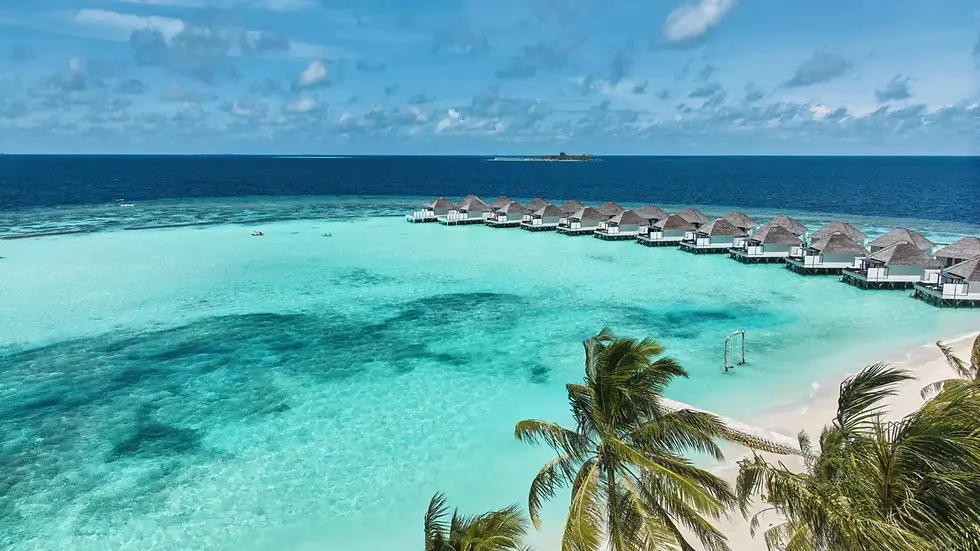Where Time Stands Still Exploring Zanskar’s Ancient Culture
- SAURAV ANAND
- Jan 17
- 5 min read

Nestled within the majestic mountains of Ladakh, Zanskar Valley remains a remote and untouched paradise, steeped in history and rich in culture. Often overlooked by travelers seeking the more popular destinations of Leh and Nubra Valley, Zanskar is a hidden gem that offers an authentic glimpse into the ancient ways of life in one of the most rugged regions of India. The valley, known for its jaw-dropping landscapes and deep-rooted Tibetan Buddhist traditions, holds within it an atmosphere where time seems to stand still. It is a region where the past is alive in the monasteries, the people, and the lifestyle. If you're looking to immerse yourself in a culture that has been shaped by isolation and the harsh, unforgiving environment, then Zanskar is the destination that should top your list.
The Journey to Zanskar Off the Beaten Path
Reaching Zanskar is an adventure in itself. While many Ladakh tour packages focus on the more accessible regions, a visit to Zanskar requires a true spirit of adventure. The road to Zanskar is only open for a few months in the year due to heavy snowfall, making it a highly sought-after destination for those looking to escape the tourist crowds. The journey involves crossing high mountain passes, navigating tricky terrains, and witnessing some of the most stunning views of the Himalayas.
The roads may be challenging, but the reward is undoubtedly worth the effort. When traveling with a Ladakh package, it’s essential to have a tour that incorporates local experiences, so you can gain insight into the culture, traditions, and deep spiritual life of the Zanskari people. The journey through the valley offers a unique chance to connect with the region’s soul, far from the bustling crowds that throng the more popular parts of Ladakh.
Zanskar's Ancient Buddhist Heritage
Zanskar's culture is deeply intertwined with Tibetan Buddhism, which has shaped every aspect of life here for centuries. The valley is home to many monasteries that date back to the 11th century. These monasteries are not only places of worship but also symbols of the region's endurance against harsh natural conditions. The locals, a mix of Tibetans and Ladakhis, continue to live in harmony with their environment, following Buddhist principles that emphasize simplicity and compassion.
One of the most notable monasteries is the Phugtal Monastery, perched on a cliffside, offering an unparalleled view of the Zanskar River below. The monastery’s isolation and natural beauty have made it a significant pilgrimage site, not only for Buddhists in India but for Tibetans and Buddhists from across the world. A visit to Zanskar would be incomplete without exploring these ancient monasteries, where the monks still practice rituals and meditations that have remained unchanged for hundreds of years.
If you’re looking Ladakh tour packages, it’s important to choose one that allows time to explore the region’s monasteries, giving you a deeper understanding of the spiritual life that is so integral to Zanskar’s culture. The sacred chants, the intricately painted walls, and the serene atmosphere of the monasteries create a timeless experience, one that connects visitors with the spiritual heart of the valley.
Life in Zanskar A Glimpse Into the Past
The people of Zanskar live a simple, yet fulfilling life, relying on traditional methods of farming, animal husbandry, and trade. Life here is not just about surviving the harsh weather conditions but thriving in harmony with nature. The Zanskari people’s resilience, resourcefulness, and deep connection to the land make them a unique group within the larger cultural landscape of Ladakh.
In this region, the traditional practice of farming is still prevalent, with barley, wheat, and peas being the staple crops. The rugged terrain limits the types of crops that can be grown, but the ingenuity of the locals has allowed them to create sustainable systems for survival. The landscape is dotted with small villages, where families live in mud-brick homes and follow age-old traditions of crafting, weaving, and pottery.
As you travel through Zanskar on a Ladakh trip, take the time to visit these villages, interact with the locals, and observe their way of life. It’s a chance to see how ancient traditions are preserved in a modern world. Whether it’s the colorful prayer flags that adorn the villages or the intricate wood carvings found in the homes of Zanskar’s inhabitants, every corner of the valley holds a story of the past.
Zanskar’s Unique Festivals A Celebration of Culture
One of the best ways to experience Zanskar’s culture is by witnessing its vibrant festivals. The Zanskar region, much like the rest of Ladakh, celebrates Buddhist festivals with great enthusiasm. These festivals, such as the Losar (Tibetan New Year) and the Saka Dawa, are not only religious events but also communal celebrations that bring the entire valley together.
During these festivals, locals dress in traditional attire, perform dances, sing, and engage in rituals that have been passed down through generations. The Losar festival, in particular, is an extraordinary event, with prayer ceremonies, feasts, and colorful displays of Tibetan art and culture. If you're traveling to Zanskar as part of your Ladakh tour, timing your visit to coincide with one of these festivals will allow you to witness the rich cultural tapestry of the region in its most vibrant form.
A Step Back in Time Preserving Ancient Culture in Modern Times
The unique aspect of Zanskar is its preservation of ancient culture, despite the encroachment of modernity. While the world outside continues to evolve, Zanskar remains largely untouched, preserving its traditions and way of life. The valley is not a place for luxury or comfort, but for those seeking a deep, authentic experience of ancient Ladakh.
Visiting Zanskar offers more than just a scenic escape; it is a chance to explore the untouched heart of Ladakh’s culture. The Zanskari people, with their humble lifestyle and welcoming nature, share their traditions with visitors who are interested in learning about their way of life. Whether it’s the Buddhist philosophy, the arts and crafts, or the festivals, Zanskar gives visitors a glimpse into a timeless culture that has withstood the test of time.
When choosing a Ladakh package, consider one that includes Zanskar Valley as part of the itinerary. It’s a destination that promises not just a trip, but a transformative experience, allowing you to step into a world that feels suspended in time.
Conclusion
Zanskar is a land where time indeed stands still, offering a rare opportunity to experience an ancient culture in its purest form. From its monasteries perched high in the mountains to its vibrant festivals and resilient people, Zanskar holds the essence of Ladakh's timeless charm. For those planning a Ladakh trip, a journey to Zanskar will open doors to a world that seems untouched by modernity, where the past and present coexist in harmony. Explore Zanskar, and you’ll be rewarded with an unforgettable experience that connects you to the ancient soul of Ladakh.



Comments